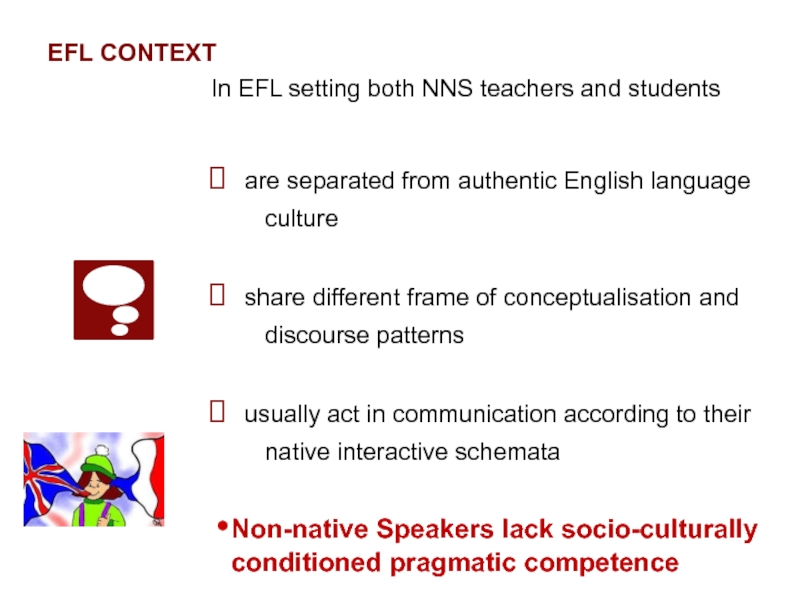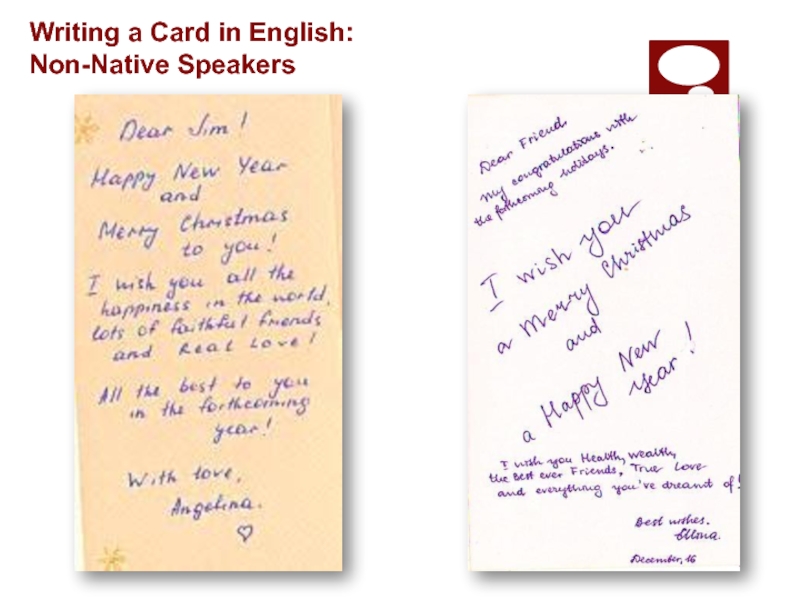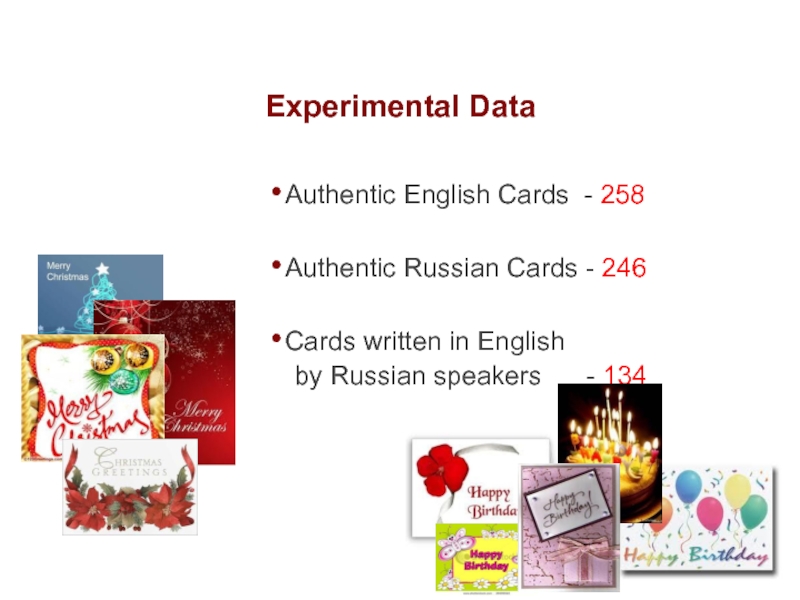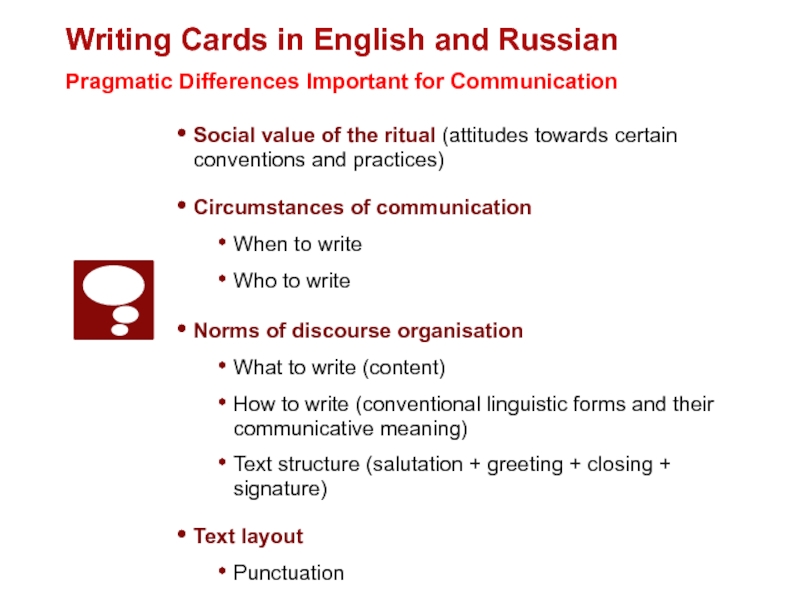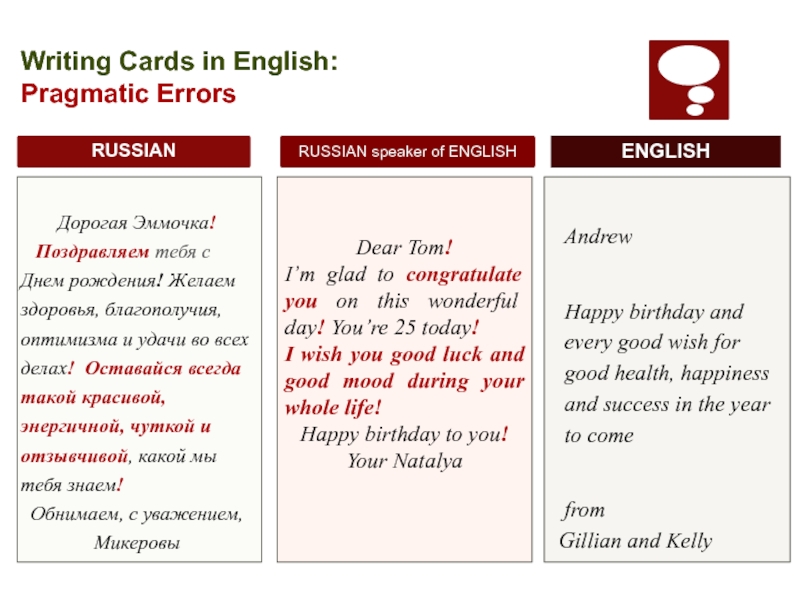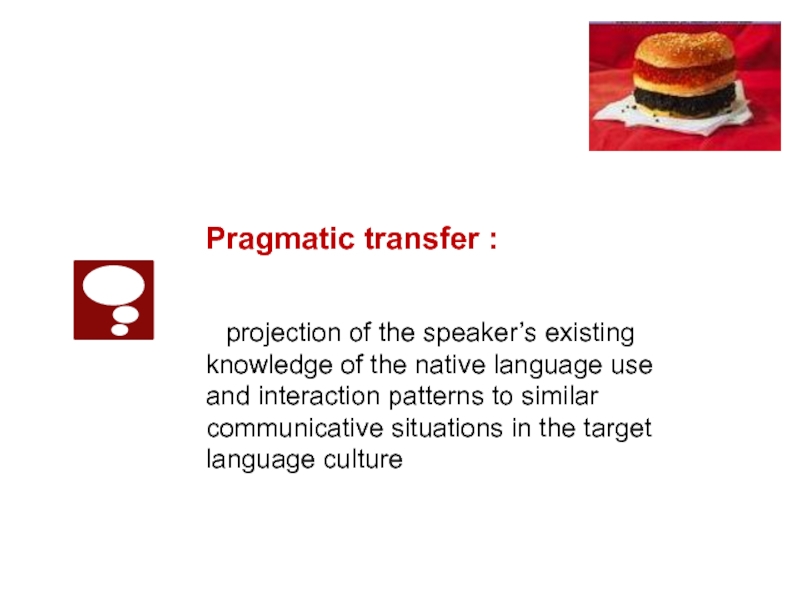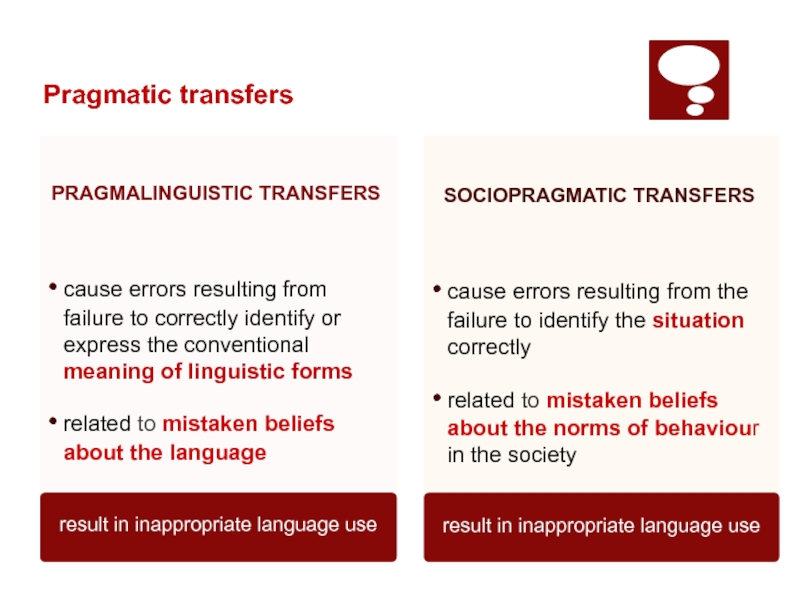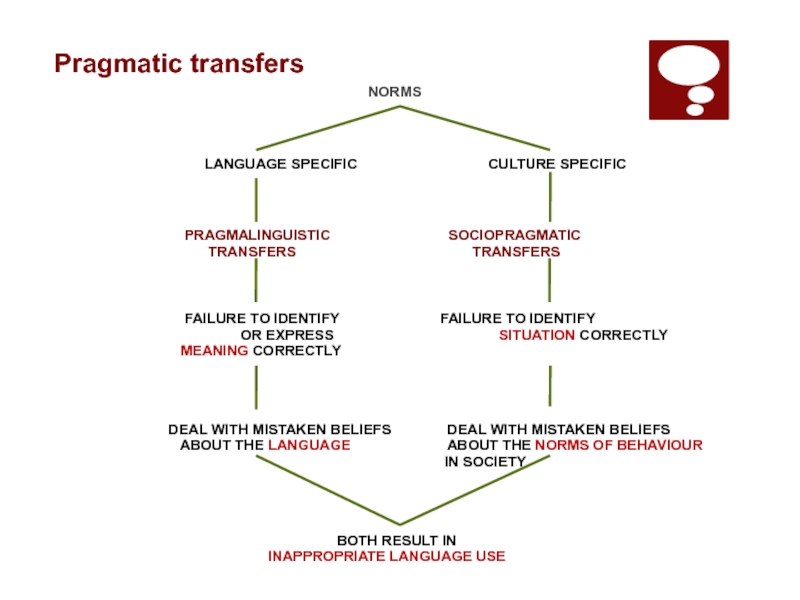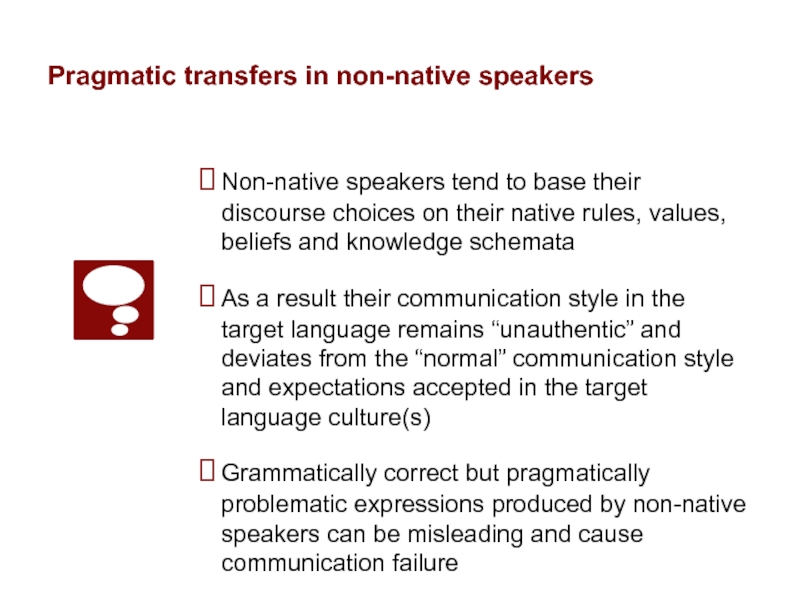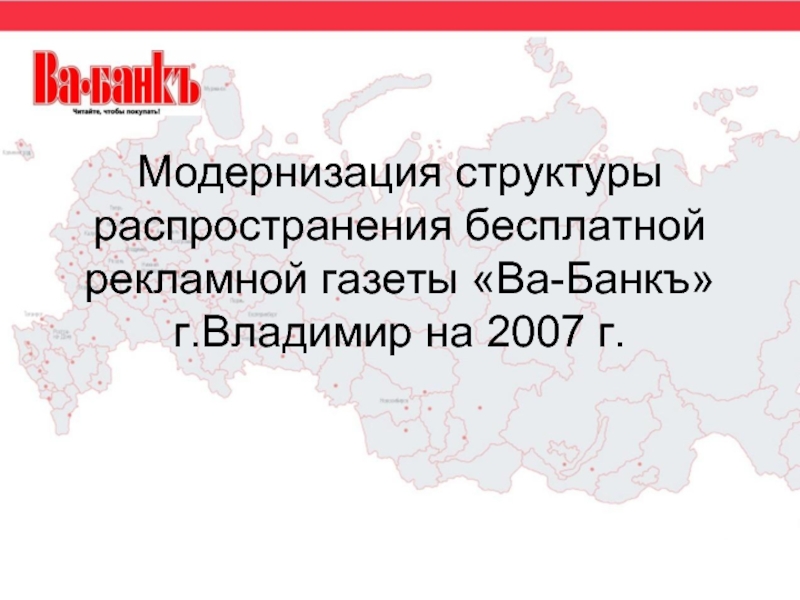- Главная
- Разное
- Дизайн
- Бизнес и предпринимательство
- Аналитика
- Образование
- Развлечения
- Красота и здоровье
- Финансы
- Государство
- Путешествия
- Спорт
- Недвижимость
- Армия
- Графика
- Культурология
- Еда и кулинария
- Лингвистика
- Английский язык
- Астрономия
- Алгебра
- Биология
- География
- Детские презентации
- Информатика
- История
- Литература
- Маркетинг
- Математика
- Медицина
- Менеджмент
- Музыка
- МХК
- Немецкий язык
- ОБЖ
- Обществознание
- Окружающий мир
- Педагогика
- Русский язык
- Технология
- Физика
- Философия
- Химия
- Шаблоны, картинки для презентаций
- Экология
- Экономика
- Юриспруденция
Why do foreigners nearly always sound wrong? презентация
Содержание
- 1. Why do foreigners nearly always sound wrong?
- 2. Foreign Language Learning Taught
- 3. In EFL setting both NNS teachers and
- 4. Writing a Сard in English: Non-Native Speakers
- 5. Writing a Сard in English NATIVE ENGLISH SPEAKER NON-NATIVE SPEAKER
- 6. Experimental Data Authentic English
- 7. Writing Christmas Cards
- 8. Writing Christmas Cards
- 9. Writing Birthday Cards
- 10. Writing Birthday Cards
- 11. Writing Cards in English and Russian: Different
- 12. Writing Cards in English and Russian: Different
- 13. Writing Cards in English and Russian
- 14. Writing Cards in English: Pragmatic Errors RUSSIAN
- 15. projection of the
- 16. Pragmatic transfers result in inappropriate language
- 18. Non-native speakers tend to base their
- 19. THANK YOU
Слайд 2
Foreign Language Learning
Taught outside English speaking country
English is a
Little or no exposure to L2 outside classroom
No real communication outside classroom → Artificial (classroom) communication
TESL vs TEFL
Teaching English as a Second Language
(TESL/TESOL)
Teaching English as a Foreign Language
(TEFL)
Second Language Acquisition
Taught in English speaking country or country where English has special communicative or sociopolitical status
Exposure to L2 outside classroom
L2 needed for real communication outside classroom
Слайд 3In EFL setting both NNS teachers and students
are separated
culture
share different frame of conceptualisation and
discourse patterns
usually act in communication according to their
native interactive schemata
Non-native Speakers lack socio-culturally conditioned pragmatic competence
EFL CONTEXT
Слайд 6
Experimental Data
Authentic English Cards - 258
Authentic Russian Cards - 246
Cards written
by Russian speakers - 134
Слайд 11Writing Cards in English and Russian:
Different Text Format
Дорогие
Катя,
От всего сердца поздравляем вас с наступающим Новым Годом и предстоящим Рождеством! Желаем вам крепкого здоровья, удачи, успехов и радости!
Пусть целый год вам сопутствует счастье!
Оля, Саша, Лида
To Gill and Pete
With best wishes
for Christmas
and the New Year
love xx
Rosalind, Mike & Charlie
Russian New Year/Christmas card
British Christmas/New Year card
Слайд 12Writing Cards in English and Russian:
Different Text Format
Дорогая Эммочка!
Поздравляем
Обнимаем, с уважением,
Микеровы
To Gill
Wishing you a very Happy
Birthday. I’ll be thinking
of you on July 26.
Much love
Ted
Russian Birthday card
British Birthday card
Слайд 13Writing Cards in English and Russian
Social value of the ritual (attitudes
Circumstances of communication
When to write
Who to write
Norms of discourse organisation
What to write (content)
How to write (conventional linguistic forms and their communicative meaning)
Text structure (salutation + greeting + closing + signature)
Text layout
Punctuation
Paragraph spacing
Alignment
Pragmatic Differences Important for Communication
Слайд 14Writing Cards in English:
Pragmatic Errors
RUSSIAN
Дорогая Эммочка!
Поздравляем тебя с Днем
Обнимаем, с уважением,
Микеровы
RUSSIAN speaker of ENGLISH
Andrew
Happy birthday and
every good wish for
good health, happiness
and success in the year
to come
from
Gillian and Kelly
Dear Tom!
I’m glad to congratulate you on this wonderful day! You’re 25 today!
I wish you good luck and good mood during your whole life!
Happy birthday to you!
Your Natalya
ENGLISH
Слайд 15
projection of the speaker’s existing knowledge of the native language use
Pragmatic transfer :
Слайд 16Pragmatic transfers
result in inappropriate language use
PRAGMALINGUISTIC TRANSFERS
cause errors resulting from failure
related to mistaken beliefs about the language
SOCIOPRAGMATIC TRANSFERS
cause errors resulting from the failure to identify the situation correctly
related to mistaken beliefs about the norms of behaviour in the society
result in inappropriate language use
Слайд 17
LANGUAGE SPECIFIC CULTURE SPECIFIC
PRAGMALINGUISTIC SOCIOPRAGMATIC
TRANSFERS TRANSFERS
FAILURE TO IDENTIFY FAILURE TO IDENTIFY
OR EXPRESS SITUATION CORRECTLY
MEANING CORRECTLY
DEAL WITH MISTAKEN BELIEFS DEAL WITH MISTAKEN BELIEFS
ABOUT THE LANGUAGE ABOUT THE NORMS OF BEHAVIOUR
IN SOCIETY
BOTH RESULT IN
INAPPROPRIATE LANGUAGE USE
Pragmatic transfers
Слайд 18
Non-native speakers tend to base their discourse choices on their
As a result their communication style in the target language remains “unauthentic” and deviates from the “normal” communication style and expectations accepted in the target language culture(s)
Grammatically correct but pragmatically problematic expressions produced by non-native speakers can be misleading and cause communication failure
Pragmatic transfers in non-native speakers


